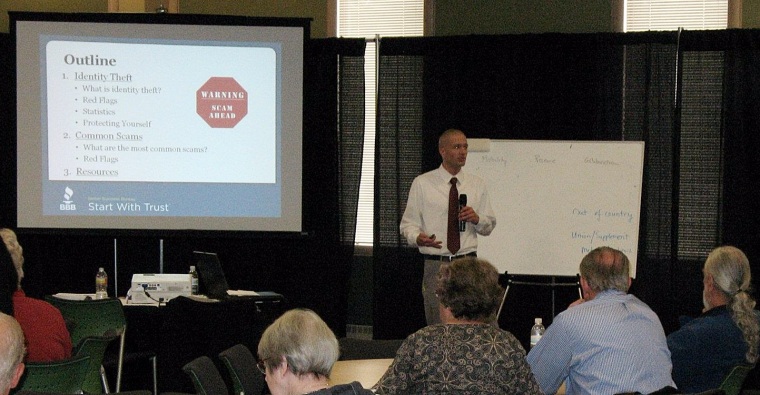Reposted from my column in the Portland Business Tribune.
Your customers—especially the younger generation—want to know what your business is doing to make the world a better place. According to a 2013 study by Cone Communications and Echo Research, 82 percent of consumers take corporate social responsibility into account when deciding where to shop and which products and services to purchase.
Better Business Bureau serving Alaska, Oregon and Western Washington is the most outward-thinking place I’ve ever worked. From free ID theft prevention events to educational webinars to volunteer work, BBB and its staff serve as a great reminder of the value of giving back to the community.
BBB also awards college scholarships to local high school seniors each year. This year was a little different than years past: BBB held a video contest for the first time, and the jackpot was bigger than ever. This year’s $10,000 scholarship was recently awarded to a talented, bright young man from Alaska who plans to attend Brigham Young.
“We are impressed by the creativity and effort put into all the videos,” BBB CEO Tyler Andrew said. “When we launched the scholarship, we wanted to increase awareness among teens on the importance of marketplace trust.”
This scholarship—this one act of generosity—actually triggers a cycle:
 By offering a scholarship, BBB is promoting its name and mission to the youngest generation. This ensures kids will know where to look for trust when they become adults and enter the marketplace as consumers and business owners. The scholarship also reminds parents about BBB’s services to the public.
By offering a scholarship, BBB is promoting its name and mission to the youngest generation. This ensures kids will know where to look for trust when they become adults and enter the marketplace as consumers and business owners. The scholarship also reminds parents about BBB’s services to the public.- These consumers will then look to BBB for trustworthy information on local businesses. And as stated in a Roper survey, 74 percent of consumers prefer to do business with a BBB Accredited Business.
- Accredited Businesses pay annual dues to BBB. They will continue to renew their Accreditation each year as long as they see a return on their investment: more customers.
- BBB uses these annual dues to fund its day-to-day operations and its services to the public—including the scholarship.
Corporate social responsibility can help your business gain customers, but it can also help you retain and attract talented employees.
Allowing your employees to be involved in volunteer activities can help them feel more fulfilled and enriched. Reports show that when employees have the opportunity to give back to the community, they have a renewed appreciation for their contributions to your company.
If you’d like to become more involved in your community, there are some simple things you can do to get started. If you have a storefront, keep a collection jar for your favorite local charity at your front desk. Employees and customers alike will effect real change just by dropping off their spare change. You could also organize an employee volunteer day. A group activity such as cooking for a homeless shelter or painting an elderly neighbor’s house can have the added bonus of boosting camaraderie among your staff.
Not only is giving back good for business, but it’s the right thing to do. It builds relationships, it makes your employees feel more engaged and satisfied, and it reminds you just how lucky you are.








You must be logged in to post a comment.